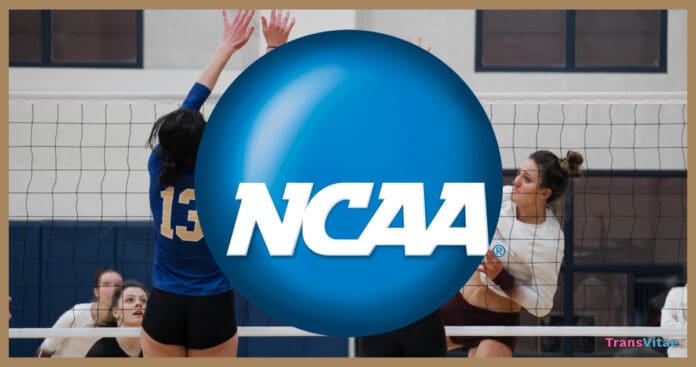The National Collegiate Athletic Association (NCAA) announced a significant update to its policy regarding the participation of transgender student-athletes in college sports. Following the Trump administration’s executive order, the Board of Governors has voted to implement a new framework that differentiates between men’s and women’s athletic categories. This policy, effective immediately, establishes that the women’s category will be restricted to student-athletes assigned female at birth, while the men’s category will remain open to all eligible student-athletes, regardless of their sex assigned at birth or gender identity.
This decision marks a notable shift from the NCAA’s previous approach and will undoubtedly have a considerable impact on transgender student-athletes aspiring to compete at the collegiate level. Under the new guidelines, student-athletes assigned male at birth will no longer be eligible to compete on NCAA women’s teams. However, the policy does explicitly permit these athletes to practice with women’s teams and receive other benefits afforded to student-athletes, such as medical care.
NCAA President Charlie Baker emphasized the rationale behind this change, stating, “The NCAA is an organization made up of 1,100 colleges and universities in all 50 states that collectively enroll more than 530,000 student-athletes. We strongly believe that clear, consistent, and uniform eligibility standards would best serve today’s student-athletes instead of a patchwork of conflicting state laws and court decisions. To that end, President Trump’s order provides a clear, national standard.”
While the establishment of a national standard aims for clarity, the implications for transgender women student-athletes are significant. For those who had previously been eligible to compete under the NCAA’s prior policy, this immediate change will necessitate a reevaluation of their athletic futures within the NCAA framework. The allowance to practice with women’s teams and receive benefits offers a degree of continued engagement, but the inability to compete will undoubtedly be a source of disappointment and frustration for many.
Conversely, the policy affirms that student-athletes assigned female at birth, including transgender men, remain eligible to compete in men’s sports, provided they meet all other NCAA eligibility requirements. It also addresses situations where student-athletes assigned female at birth have begun hormone therapy (such as testosterone), stipulating that they may not compete on a women’s team. However, they can continue practicing with the team and receive other benefits.
Recognizing the potential impact of this policy change on the well-being of student-athletes, the NCAA has also directed its member schools to prioritize the creation of welcoming and inclusive athletic cultures on all campuses. This directive aligns with the NCAA’s recent updates to its Mental Health Best Practices, which mandate that all schools provide accessible mental health services and resources to all student-athletes.
“The updated policy combined with these resources follows through on the NCAA’s constitutional commitment to deliver intercollegiate athletics competition and to protect, support and enhance the mental and physical health of student-athletes,” President Baker stated. “This national standard brings much needed clarity as we modernize college sports for today’s student-athletes.”
It is crucial to note that individual schools retain the autonomy to determine athletics participation policies on their campuses, and local, state, and federal legislation will supersede NCAA rules. This localized flexibility may lead to varying experiences for transgender student-athletes across different institutions and regions.
The Bottom Line
For transgender individuals, their families, and allies, this policy shift will require careful navigation. While the NCAA emphasizes its commitment to fostering respectful environments and providing mental health support, the restriction on transgender women competing in women’s sports presents a significant barrier. It underscores the ongoing complexities and debates surrounding inclusivity and fairness in athletic competition.
TransVitae.com remains committed to providing further updates and resources as this new policy is implemented and its effects on transgender college athletes become clearer. We encourage individuals affected by this change to seek support from campus resources, advocacy organizations, and their support networks. The pursuit of athletic dreams should be met with understanding, respect, and a commitment to the well-being of all student-athletes.


